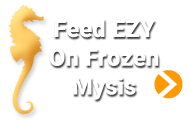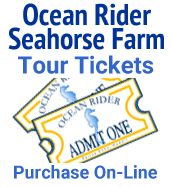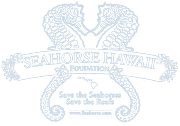- This topic has 1 reply, 2 voices, and was last updated 15 years, 4 months ago by Pete Giwojna.
-
AuthorPosts
-
March 25, 2009 at 11:20 pm #1644hobbyMember
i am sorry i guess i was wanting to keep some red volcanic shrimp for feeding my ponys every now and then.
March 26, 2009 at 1:21 am #4734Pete GiwojnaGuestDear hobby:
No problem! If you were wondering about keeping some of the red feeder shrimp or Hawaiian volcano shrimp on hand for your seahorses, rather than the brine shrimp, then your quarantine tank would make a good place to keep the feeder shrimp. All Ocean Rider seahorses are born and raised at a high health aquaculture facility, and are certified to be free of pathogens and parasites when you receive them, so they do not need to be quarantined before you introduce them to the main tank. That would leave your quarantine tank free to house some of the red volcano shrimp, if you wish.
The also helpful to know how to keep and maintain the red feeder shrimp that come with the seahorses, and I’d be happy to give you some pointers in that regard, hobby. (Ocean Rider traditionally includes a small quantity of red Hawaiian volcano shrimp with the purchase of each pair of seahorses. The live shrimp help the new ponies adjust during the initial acclimation period when you first introduce them to your tank. The live foods will give the new arrivals a head start, help them recover from shipping stress quickly, and get them through the difficult period of adjustment in tiptop condition.)
The red volcano shrimp (Halocaridina rubra) are hardy little critters that are very easy to keep and maintain, but they reproduce very slowly and have a complex life cycle which makes it very challenging to raise numbers of them in batch cultures. They are great little shrimp that are perfect for seahorses — bite sized, irresistible, and highly nutritious (a natural prey item that ponies go crazy over and that will survive indefinitely in the aquarium until they are hunted down and eaten). If you just want to keep the supply of them on hand to feed to your seahorses as occasional treats, then you can’t beat the red volcano shrimp.
This is what I normally advise hobbyists with regard to the volcano shrimp:
You will find the red feeder shrimp (Halocaridina rubra) to be easy to keep and relatively undemanding to culture, although their numbers build up very gradually due to their naturally slow rate of reproduction.
Red feeder shrimp or volcano shrimp, as they are sometimes known, prefer brackish conditions and breed best at reduced salinity (1.0145) but they adapt well to full strength saltwater and will survive indefinitely is a marine aquarium. They are a perfect "feed-and-forget" treat for large seahorses! As a rule they don’t need a great deal of room. A simple sponge filter will do. The Care Sheet for the volcano shrimp is available online at the following URL:
http://www.seahorse.com/Aquarium_Life/Care_Sheets/Red_Shrimp/
Here is some additional information about these shrimp, including suggestions for feeding them, that may be of interest to those of you who are interested in keeping or culturing these colorful little crustaceans:
RED FEEDER SHRIMP from Hawaii (Halocaridina rubra)
Pros:
* Excellent nutritional value
* Irresistible to all the greater seahorses.
* Feed-and-Forget — lasts forever in saltwater!
* Easy to enrich.
* Simple to gut-load.
* Can be cultured using simple techniques and the most basic setups.Cons:
* Reproduces slowly; difficult to build up a large population.Collecting Tips:
None.Culture Instructions:
Specific gravity: 1.0145-1.0168; pH: 8.0-8.3
Temperature: 68° F – 73° F (20° C – 23° C)These fabulous little feeder shrimp can be kept indefinitely in a spare 2-10 gallon tank, or even a clean, plastic bucket, that has been filled with clean saltwater and equipped with an airstone for aeration. Neither a heater nor a fancy filtration system is required. They thrive at room temp and reduced salinity (1.015-1.016), and all they require is an airstone (or a simple air-operated foam filter at most) to keep the water oxygenated, with perhaps a little coral rubble as substrate and a clump or two of macroalgae (sea lettuce, Ogo, Gracilaria) to shelter in. They’re easy to feed — they feed primarily on algal mats and bacteria — but they will accept vegetable-based flake foods and pellets such as various Spirulina products. They are filter feeders and can also be fed with yeast or commercially prepared foods for filter-feeding invertebrates. Many people find an easy way to feed them is to place a small piece of algae-encrusted live rock in their holding tank; once they clean it off, simply replace it with a new piece of algae rock. But if you want to culture them, I’d recommend ordering the special shrimp food formulated just for them when you order your feeder shrimp from Hawaii. It’s called Shrimpgro and is designed to meet all their needs and requirements:
http://seahorse.com/shop/index.php?main_page=product_info&cPath=2&products_id=6
Comments:
These tiny red feeder shrimp (Halocaridina rubra) are native to Hawaii where they inhabit underground lava tubes. Brackish pools collect in the cracks, crevices and depressions in the lava below the water table, thus forming the habitat for the shrimp. The brackish water that fills these pools consists of intrusive seawater diluted by freshwater that percolates downward. Because of their lava-tube habit, they are sometimes called Hawaiian Volcano Shrimp.
Native Hawaiians call them Opa’e-ula, and they are unique among the several different species anchialine pond shrimp in being small, social, herbivorous shrimp that feed mainly on algae and bacteria. They are known to feed on insects that drown in the lava tubes. When conditions are favorable, they may feed en masse at the surface in swarms of countless individuals that turn the water red.
Halocaridina rubra look like miniature, bite-size Peppermint Shrimp, and all seahorses save the miniature species go absolutely nuts for them! They are very nutritious and eat a varied, omnivorous diet. They are perfect for seahorses in every way.
Unfortunately, it is very difficult to culture these shrimp in any quantity, since they reproduce slowly and the females only carry 12 to 14 eggs. They spawn but 4 or 5 times and produce an average of only 5-10 larvae per spawn. The larvae hatch as free-swimming, yolked zoeae after a brooding period of 38 days. Larval development is abbreviated with four zoeal stages and one megalopial stage occurring before they reach the first juvenile stage. Duration of the larval stages in the aquarium is 24 to 27 days at 22 to 23 degrees C.
Like other shrimp, it is the complicated larval developmental period they undergo, with multiple zoea and megalops stages, that makes the larvae difficult to raise. However, it can be accomplished the same way other decorative shrimp such as peppermint shrimp (Lysmata wurdemanni) are raised. There is a very interesting and informative book that explains exactly how to go about raising such shrimp that I recommend you read. It’s called "How To Raise & Train Your Peppermint Shrimp" by April Kirkendoll and they can be obtained at the following URL:
http://saltaquarium.about.com/cs/fprswaqbooks/fr/aafprpshrimpboo.htm
You’ll find lots of excellent information on raising peppermint shrimp in April’s book that will apply equally well to your volcano shrimp.
Finally, here is the product description for the red volcano shrimp as it appears on the Ocean Rider website:
<Open quote>
Red Volcano Shrimp (Halocaridina rubra)Also known as Red Iron Horse Feed, Live Red Hawaii Shrimp!
Excellent source of nutrition for your seahorses and other delicate fish. These shrimp are full of long chain fatty acids and beta carotenes. Adults are 1/2 to 1 cm long, mate 4 to 5 times a year spawning about 6-8 offspring.
These shrimp are endemic to Hawaii and a few other South Pacific Islands where they inhabit underground lava tubes where rain water mixes with the ocean water into open anchailne ponds creating a very unique environment with low salinity (16 ppt) and varying temperatures (65F to 75F). Here they feed at night on the bacteria and fungus that grows on the lava walls and rock crevices that are exposed to light during the day.
Ocean Rider aquafarms these shrimp in our own anchialine pond. At home you can house up to 600 shrimp in 5 gallon tank with a sponge filter, very little light, gravel substrate, and sea lettuce for habitat. You can feed them small amounts of Shrimpgro, being careful not to overfeed. Or you can cultivate your own fungus and bacteria on the tank walls and floor for them to graze on. Be sure you use a hydrometer to check the specific gravity which should be 1.0114. Water temperature can range from 60F – 75F, Ammonia and Nitrites must be kept at 0, Nitrates should be less then 10ppm PH 8.2 – 8.4
Feeding: 3-5 shrimp per seahorse per feeding . We recommend feeding once or twice a week and all the time while on vacation!
Quantity is measured volumetrically so expect to receive between 20 and 30 pieces depending on biomass of each individual shrimp.
<Close quote>Okay, hobby, that’s the story regarding the red feeder shrimp or volcano shrimp. You certainly could maintain a nice batch of them in your quarantine tank, and if you wanted to order some extra volcano shrimp at the same time you purchased the seahorses, it will save you the shipping costs. But you only need the red volcano shrimp as an occasional treat, if you like to feed your seahorses live foods from time to time, because they will be eating Vibrance-enriched frozen Mysis as their staple, everyday diet.
Best of luck preparing your new aquarium for seahorses, hobby!
Happy Trails!
Pete Giwojna -
AuthorPosts
- You must be logged in to reply to this topic.





